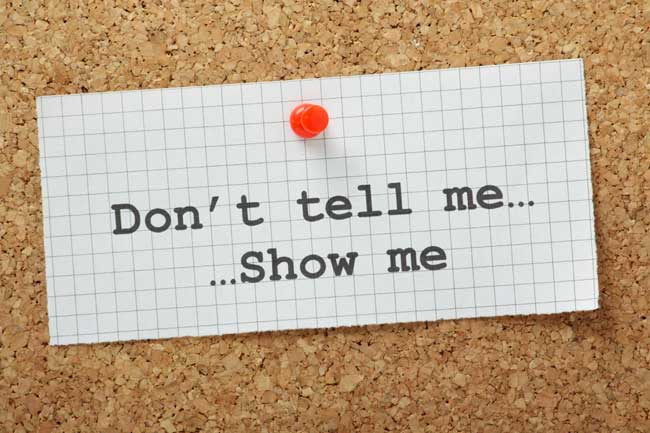Buying a site can be a good idea if you’re sure that you’re able to beat the competition of the site you buy. That’s why the first thing that you’re supposed to do before you even think about buying a site is check its competitors. You want to ensure that you’ll be able to do the same and a little better in terms of content creation, content promotion and marketing in general. Once you’re absolutely sure about that, you’re ready to go to the next step.
Where to Buy a Site
You can just go to Flippa.com or a similar site and make your choice on location. The benefit of that approach is that you can choose from tons of sites that are for sale. Plus you can do it pretty fast because those site owners are in selling mood and open to discussing the price. The drawback would be that lots of folks bid on those sites as well. That translates into the owner being geared up to see who offers a better price. That may be a bit of a bummer in some cases.
Alternatively, you may want to contact a specific site that you’d like to own and you’re sure that you can improve it. That will definitely take you a while to find such s site, contact the owner and agree upon a price, but it’s well worth it because you won’t have to compete with other bidders. So it can be a bargain at the end of the day.
And before you go any further, you need to always remember the following. It makes sense to work on a site that excites you. You should really love what you’re doing. Especially if you work with the site on your own (no outsourcing). Otherwise you just won’t be able to crank out useful and quality content for your site. Well, at least not over the long haul.

How to Tell if the Site is Good Enough?
You need to properly assess your future buy before you actually start talking money. Doing so allows you to get to the nitty gritty of the actual site value and know when exactly you need to stop when it comes to increasing your price while discussing it with the owner. Here’s what you need to assess in a site you consider buying:
- domain age. You want it to be as old as possible because it’s a positive sign when it comes to Google and other major search engines. Other than age, you also need to ensure that the site had congruent content with the one you plan on publishing on the domain. That means a domain name that was used for a funny cats website won’t do much good to your real estate website.
- verified traffic. You should ask the site owner to grant access to his or her Google Analytics account so that you can see all the data for yourself. Also, you need to check if the traffic is profitable. That means that people coming to that site are ready to buy the stuff you offer.
- traffic from multiple sources. While in the Google Analytics account of your potential site, be sure to check where the traffic is coming from. You want it to be from multiple sources because if one of them fails to work, you still have enough folks visiting your site to keep the whole shebang afloat.
- growing potential. You most definitely need to check Google Trends to ensure that the topic the site idea is around is not declining. For example, “flash sites” is not a good idea to build a site around nowadays because nobody wants it anymore.
- workload expectations. It goes without saying that you’ll need to work on your site to at least keep it where it is now, let alone if you actually want to improve its performance (and you MUST want it). Firstly, you may just ask the owner to give you a complete list of activities that he does for the site at the moment. It’s just a starting point that you’ll be able to build on down the road. You want to assess what kind of work you need to do and if you have the time, money and desire to do so. If it’s the case, you’re good to move on.
- doable site technicalities. Though many new sites just use WordPress, you still need to explicitly ensure (just ask) because you can’t really tell if it’s the case just by looking at the site. Should it be not WordPress, you totally need to see if you can handle such a site. If doing so means learning some new technologies, you surely want to check if you can learn them beforehand. Alternatively, you need to make sure that you have the budget to outsource your technical tasks. Otherwise you may get really disappointed after you actually buy your site.
- such a site from scratch. Now that you know what you’ll need to do to keep the website in the business, you need to assess what would it cost to build such a site from the ground up. If doing so means spending by a long shot more time, money and efforts, you’re most likely good to go and just purchase the site. If it’s not the case, why not just build a brand new site on your own?
Note: you want to factor in that if you build a site from scratch and use a brand new domain, it can take longer and require more efforts to rank you site high enough.
How to Buy a Site: More Proof
Other than proof of traffic, you also want to ensure a few other things so that you can clearly see the picture of what you can expect when the site becomes absolutely yours. Here’s the breakdown:
- proof of domain registration
- proof of all expenses associated with running the site (newsletter service, hosting provider, etc)
- lists of creditors and any debts owing
- evidence of income generated by the site
- financial records (preferably of a few years)
In the best case scenario, you need all the above-mentioned details before you even take your first in-depth look at the site.
Now, if you’re somebody who actually wants to sell a site, you need to make sure that you have the above-mentioned info ready (at least on demand).

Due Diligence is Applicable Here
Though you won’t be misled in most cases, you still should check all the info you get from the site owner. That holds even more true for that simple reason that you won’t be able to check everything. So check at least what you can. In order to do that, you should find the following tools really handly:
- SEOquake (PR, domain age, indexed pages, etc).
- Alexa.com
- Opensiteexplorer.org
- Semrush.com
- WayBack Machine
Negotiating Routine
First things first. You want to see if the site owner actually wants to sell his site. Once you get your confirmation, you should get back to the site owner and ask him what he wants to charge for the site. You want him to tell the price first. Having the price, you can take a closer look at the site, find drawbacks in it and get back to the site owner with your reasoning how exactly those issues make that price unfair.
That done, you should politely offer your price. Again, you must always explain why you think that the price the owner originally stated is not a good one. In case you found lots of drawbacks on the site, you may want to hold back some of them to point to them when you explain why you lower the price later.
Bottom Line
Now you know how to buy a site . If you do that on Flippa.com, be sure to check the seller’s reputation. If you contact the site owner on your own, you need to check everything yourself in that case.. Once you get all the proof you need, it’s perfect timing to start negotiating the price. As long as the price hugely justifies buying the site rather than making a new one, you’re good to go. Once you reach the price that works both for you and the seller, just go for it .
What can you recommend to do before buying a site?





